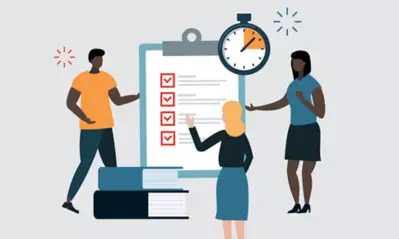New University of Phoenix Survey Reveals Majority of U.S. Adults are Concerned Their Online Healthcare Records are Vulnerable to Hackers
By University of Phoenix
Majority of Americans are comfortable with electronic health records being shared across networks, but nearly three out of four Americans say they are concerned these records are vulnerable to hackers
PHOENIX, Sep. 28, 2016 — In observance of National Health Information Technology (NHIT) Week and to mark the important role health information technology plays in U.S. healthcare delivery, University of Phoenix® College of Health Professions School of Health Services Administration today announced survey findings outlining the comfort level of U.S. adults when sharing their health data. As Americans spend more time on the Internet in their personal and professional lives, they are slowly becoming more comfortable with the use of new technologies to manage healthcare records—but many still have concerns about this information’s vulnerability to hackers[1].
The survey shows that nearly three out of four (72 percent) U.S. adults agree with the statement, “I am concerned that my online healthcare records are vulnerable to hackers.” At the same time, 59 percent of Americans said they are comfortable with healthcare records being transmitted across networks, even across country borders[1].
These numbers have shifted slightly since a similar 2015 University of Phoenix survey, which found that 76 percent of U.S. adults were concerned that their healthcare records were vulnerable to hackers and 55 percent were comfortable with records being transmitted over networks[2].
The trend toward a more accepting view of technology being used for healthcare data may have something to do with American’s use of the Internet. According to the 2016 survey, fifty percent adults say they spend 20 hours a week or more on the Internet, and 26 percent say they spend 10-19 hours a week online.
“As Americans become more trusting of the technology being used to manage their personal health information, the industry has an obligation to preserve that trust by investing and developing new technologies, protocols and systems that can provide them with the security they deserve,” said Dr. Mark Johannsson, academic dean for University of Phoenix School of Health Services Administration. “National Health IT Week draws attention to the important issue of exploring new information technologies in advancing the healthcare industry. The faculty at both University of Phoenix College of Health Professions and College of Information Systems and Technology are working together to make sure the next generation of health and IT professionals are collaborating to advance technologies and best practices vital to providing patients with the best possible care.”
To learn more about University of Phoenix School of Health Services Administration programs, visit www.phoenix.edu/healthadmin. To learn more about University of Phoenix College of Information Systems and Technology programs, visit www.phoenix.edu/technology.
For more information about University of Phoenix programs, including on-time completion rates, the median debt incurred by students who completed the program and other important information, please visit phoenix.edu/programs/gainful-employment.
Survey Methodology
This survey was conducted online within the United States by Harris Poll on behalf of University of Phoenix from Sept. 14–16, 2016, among 2,069 adults ages 18 and older. This online survey is not based on a probability sample and therefore no estimate of theoretical sampling error can be calculated. For complete survey methodology, including weighting variables, please contact becky.frost@apollo.edu.
About University of Phoenix® College of Health Professions
University of Phoenix® College of Health Professions offers leading-edge graduate, undergraduate, certificate, and non-degree programs aimed at preparing students to improve the quality of healthcare in their communities and the industry. The College of Health Professions is helping to ensure that today’s graduates can effectively tackle tomorrow’s healthcare challenges. For more information, visit phoenix.edu/chp.
About University of Phoenix
University of Phoenix is constantly innovating to help working adults move efficiently from education to careers in a rapidly changing world. Flexible schedules, relevant and engaging courses, and interactive learning can help students more effectively pursue career and personal aspirations while balancing their busy lives. As a subsidiary of Apollo Education Group, Inc. (Nasdaq: APOL), University of Phoenix serves a diverse student population, offering associate, bachelor’s, master’s and doctoral degree programs from campuses and learning centers across the U.S. as well as online throughout the world. For more information, visit phoenix.edu.
1 Survey of 2,069 U.S. adults ages 18 and older conducted online within the United States by Harris Poll on behalf of University of Phoenix from September 14-16, 2016. For complete survey methodology, including weighting variables, contact Becky Frost at becky.frost@apollo.edu.
2 Survey of 2,031 adults ages 18 and older conducted online within the United States by Harris Poll on behalf of University of Phoenix from Sept. 14-16, 2015. For complete survey methodology, including weighting variables, please contact becky.frost@apollo.edu. https://www.phoenix.edu/news/releases/2015/10/us-adults-concerned-about-security-of-health-care-data.html


